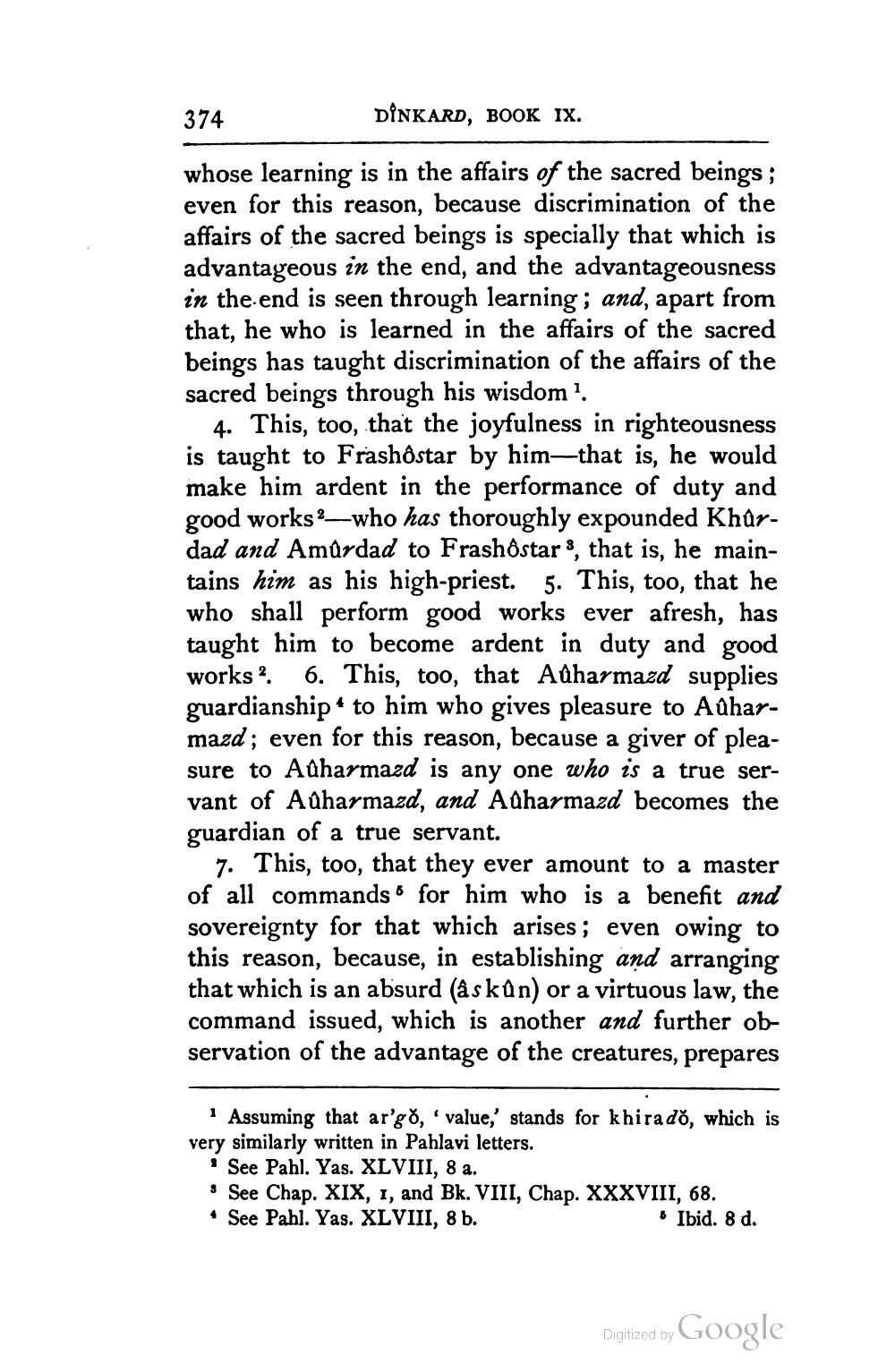________________
374
DİNKARD, BOOK IX.
whose learning is in the affairs of the sacred beings; even for this reason, because discrimination of the affairs of the sacred beings is specially that which is advantageous in the end, and the advantageousness in the end is seen through learning; and, apart from that, he who is learned in the affairs of the sacred beings has taught discrimination of the affairs of the sacred beings through his wisdom 1.
4. This, too, that the joyfulness in righteousness is taught to Frashôstar by him-that is, he would make him ardent in the performance of duty and good works 2-who has thoroughly expounded Khûrdad and Amûrdad to Frashôstar, that is, he maintains him as his high-priest. 5. This, too, that he who shall perform good works ever afresh, has taught him to become ardent in duty and good works 2. 6. This, too, that Aûharmazd supplies guardianship to him who gives pleasure to Aûharmazd; even for this reason, because a giver of pleasure to Aûharmazd is any one who is a true servant of Aûharmazd, and Aûharmazd becomes the guardian of a true servant.
4
7. This, too, that they ever amount to a master of all commands for him who is a benefit and sovereignty for that which arises; even owing to this reason, because, in establishing and arranging that which is an absurd (âs kûn) or a virtuous law, the command issued, which is another and further observation of the advantage of the creatures, prepares
1 Assuming that ar'go, 'value,' stands for khirado, which is very similarly written in Pahlavi letters.
See Pahl. Yas. XLVIII, 8 a.
* See Chap. XIX, 1, and Bk. VIII, Chap. XXXVIII, 68. See Pahl. Yas. XLVIII, 8 b.
Ibid. 8 d.
Digitized by
Google




